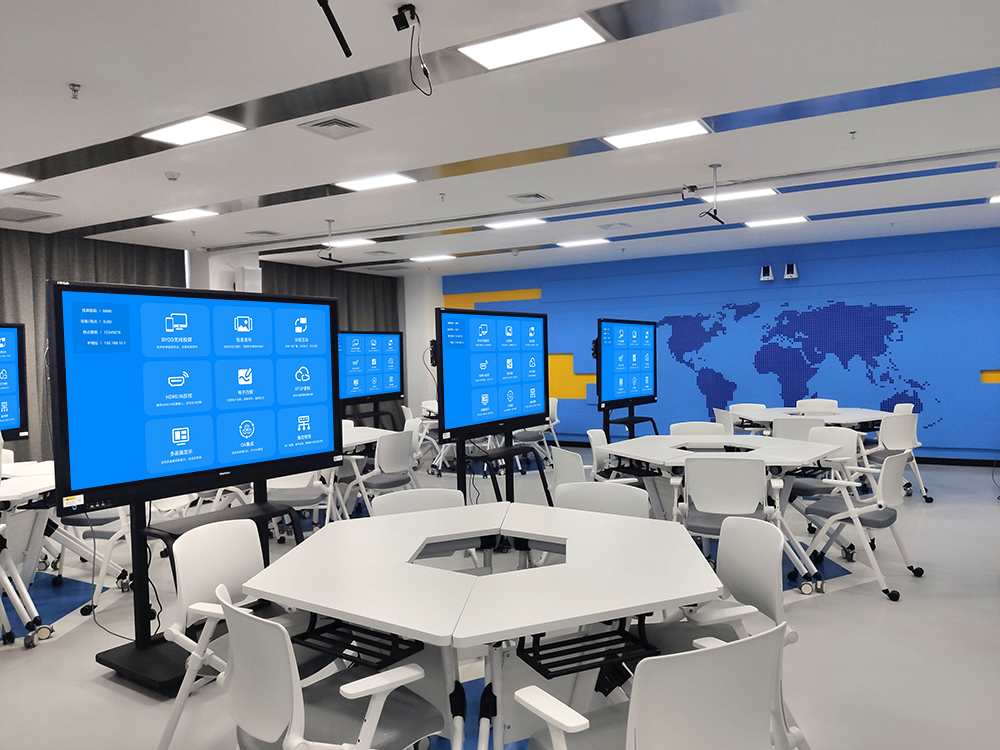Smart Classroom Construction: Perfect Integration of Google Cast and Group Discussion
The construction of modern smart classrooms requires in-depth integration of Google Cast technology with group discussion models to create an efficient and interactive teaching environment.
1. Technical Architecture Design
Network Environment Planning
- Full coverage of high-speed WiFi: Ensure stable signal in all areas, including group discussion zones.
- Stable network connection: Minimize latency and packet loss to support smooth multi-device casting.
- Reasonable bandwidth allocation: Prioritize bandwidth for Google Cast traffic and teaching devices.
Display Device Configuration
- Main display selection: Equip with large-size high-definition interactive screens supporting Google Cast natively.
- Group display layout: Deploy dedicated displays for each group, positioned for easy viewing by all members.
- Visual experience optimization: Adjust screen brightness, contrast, and viewing angles to reduce eye strain.
2. Innovation in Group Discussions
Spatial Design
- Flexible group area division: Use movable furniture to enable quick adjustment of group sizes.
- Independent display device configuration: Each group has its own screen to avoid interference during discussions.
- Convenient circulation design: Ensure unobstructed movement for teachers to access all groups.
Technical Support
- Google Cast multi-device connection: Support simultaneous casting from multiple student devices to group or main screens.
- Quick content switching: Enable one-click transition between group displays and the main screen via a central control panel.
- Real-time collaborative interaction: Allow annotations and comments on cast content across devices.
3. Teaching Application Practices
Collaborative Group Learning
- Task-driven discussions: Teachers assign tasks and monitor progress through cast content.
- Real-time result display: Groups share outcomes instantly via Google Cast for peer learning.
- Interactive evaluation and feedback: Teachers and peers provide comments directly on displayed content.
Teacher Guidance Support
– 巡回指导 (Patrol guidance): Teachers view each group’s cast content to offer timely assistance.
- Personalized tutoring: Provide targeted guidance based on group performance shown on screens.
- Process monitoring and assessment: Track discussion dynamics through cast content recordings for comprehensive evaluation.
